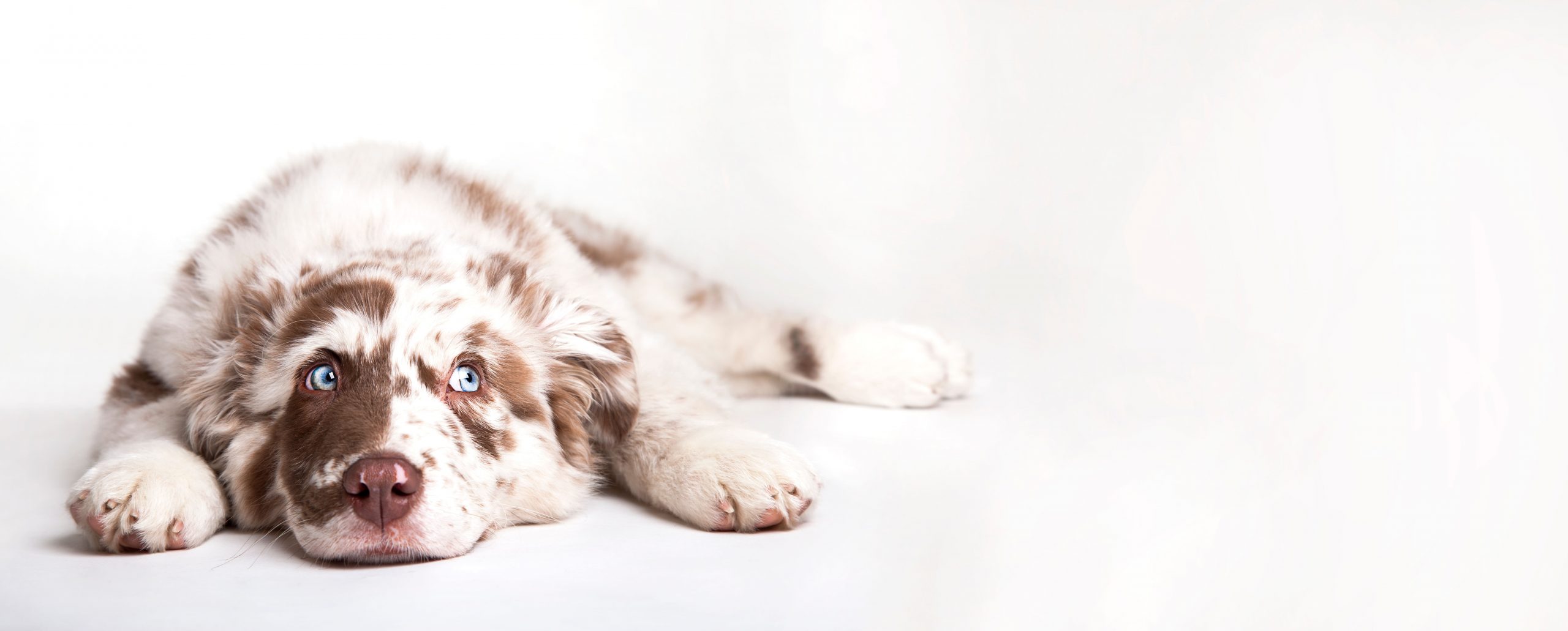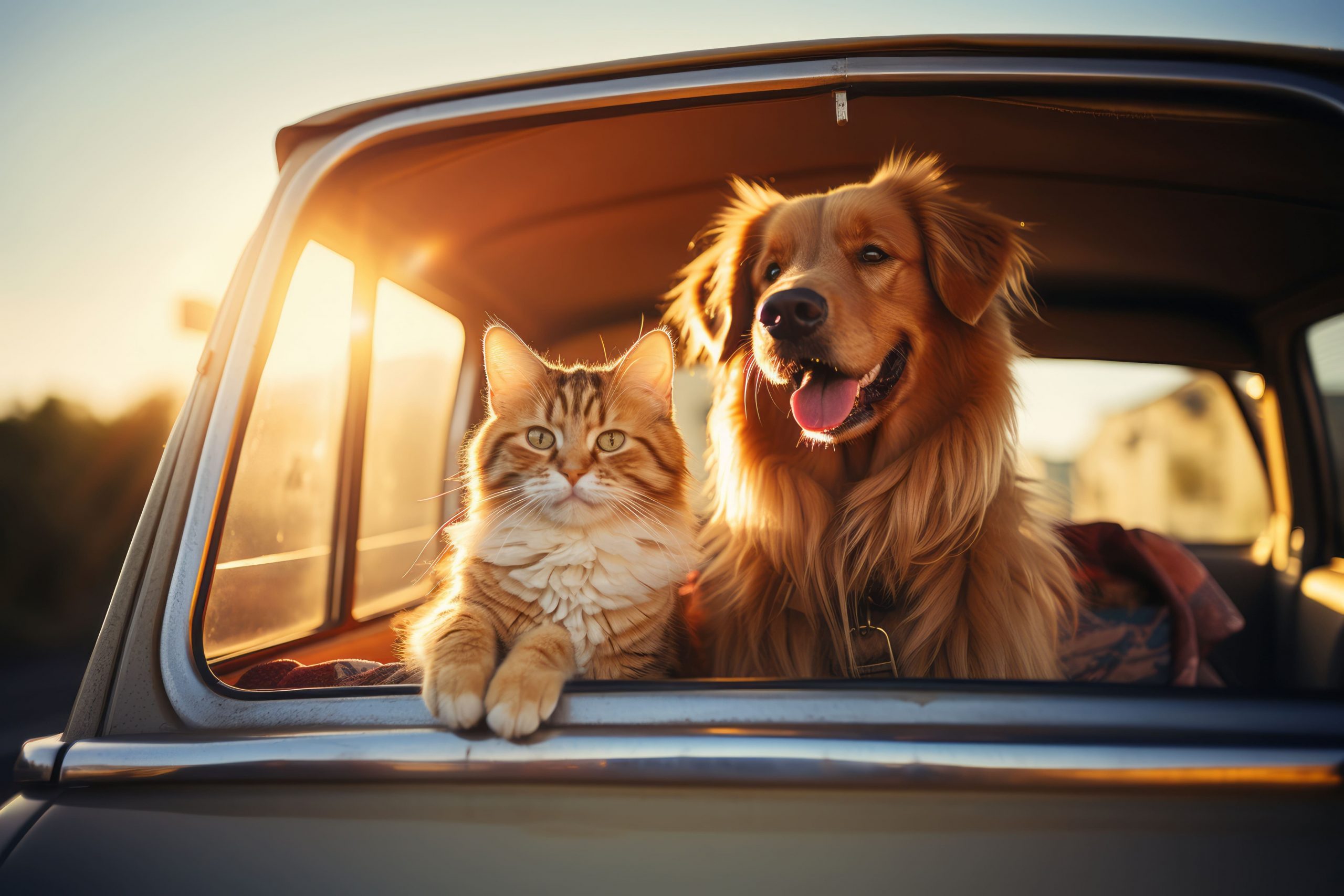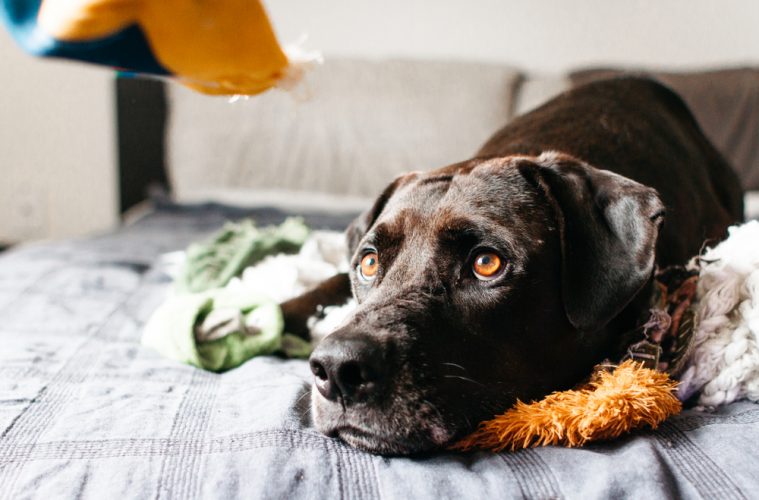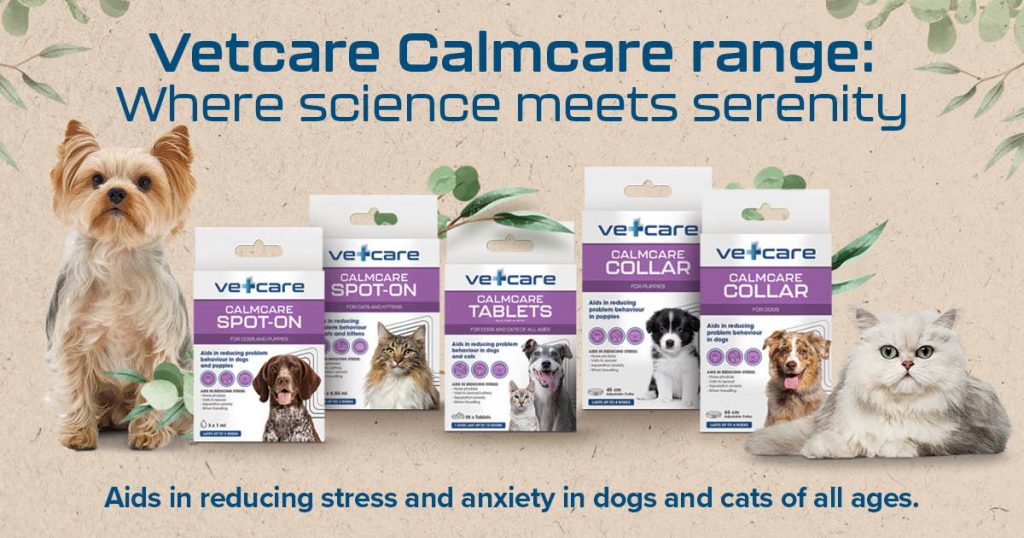Although many pets experience anxiety, the golden rule is that “No two animals are the same”.
It is important for pet parents to recognise the signs of anxiety in their pets:
- Sudden urination or defecation
- Marking of objects by urinating on them
- Restlessly pacing
- Jumping or startling easily
- May hug, lean on or dig into you
- Tries to hide or climb on you
- Loss of interest
- Excessive vocalisation
- Over-grooming
Behavioural changes or changes in routine is usually the first indication that you dog might be experiencing anxiety.
It’s important to also keep the possibility of illness or medical problems in mind when dealing with a behavioural problem in pets. Please consult your vet with any suspected anxiety to rule out medical conditions.
Often, with prolonged anxiety and stress, behavioural problems occur.
Behavioural problems
Between 40 – 50% of dogs experience behavioural problems at some point in their lives.
Anxiety and resulting depression in pets might develop behavioural problems when they experience prolonged periods of stress and anxiety and can lead to self-soothing behaviours similar to a child sucking her thumb or a person biting their nails. A lot of behavioural problems develop as some sort of coping mechanism.
In many cases help from both your vet and a behaviourist needs to be enlisted. Some drugs and medications might also help to reduce anxiousness.

Supplied
Some common behavioural problems include:
Elimination: Breaks prior house-training habits and defecates or urinates on carpets or carpets.
Aggression: Sudden onset of aggression towards family members and/or other pets.
Excessive vocalisation: Excessive and incessant barking, whining or meowing – often without an obvious cause.
Separation distress: Becomes distressed at being left alone.
Withdrawal or depression: Isolates herself from other pets or owners, loses interest in playing or move away when other pets/people enter the room.
Common causes of anxiety in pets
Environmental causes – aggression or bullying by other pets or members of the family.
Fear of the unknown – travelling to new places, vet visits, going to kennels or having pet sitters look after pets.
Separation-related distress – anxiety related to being separated from the person your pet has bonded to.
Change in routine – new people coming to visit during the holiday season.
Noise phobias – extreme fear of loud noises like thunder and fireworks.
A holistic approach should be considered when dealing with an anxious pet, where both the triggers causing anxiety, as well as the anxiety itself get addressed.

Supplied
Treatment options
Treatment sometimes entails a multi-faceted approach, and will oftentimes require pet owners to work with both their veterinarian and behaviourist to find a treatment plan that will work long-term.
The need for supplementation and/or medication can be for short- or long-term treatment options, especially where the contributing factor is beyond the control of the pet owner (fireworks, lightning storms) or is a chronic issue in the animal (over-protectiveness).
Vetcare Calmcare Range
Vetcare Calmcare Tablets contains 6 natural actives that help to promote relaxation and calm in cats and dogs.
L-tryptophan increases the production of serotonin, which controls behaviour and mood. Low levels of serotonin are directly related to aggression, depression and stress. L-theanine has been shown to increase the levels of calming neurotransmitters like GABA, serotonin, and dopamine, as well as reduce neurotransmitters that lead to hyperexcitability and stress. Vitamin B6 is important for the production and activity of serotonin. Vitamin B3 plays an important role in brain development and coping with stress. Vitamin B1 has been shown to reduce anxiety and improve general well-being.
Vetcare Calmcare Collars and Spot-on for Dogs & Puppies contain Dog Appeasing Pheromone (DAP), sometimes known as apasine, which is released by the sebaceous glands in the inter-mammary sulcus of lactating female dogs. It is secreted between three to four days after parturition and two to five days after weaning.
Vetcare Calmcare Spot-on for Cats & Kittens contains Maternal Appeasing Pheromone which is naturally produced by queens when nursing their kittens and is a crucial part of the bonding process. By replicating this pheromone in VETCARE CALMCARE Spot-on for Cats & Kittens, cats associate the pheromone with feelings of safety and reassurance, eliciting a calming effect.


